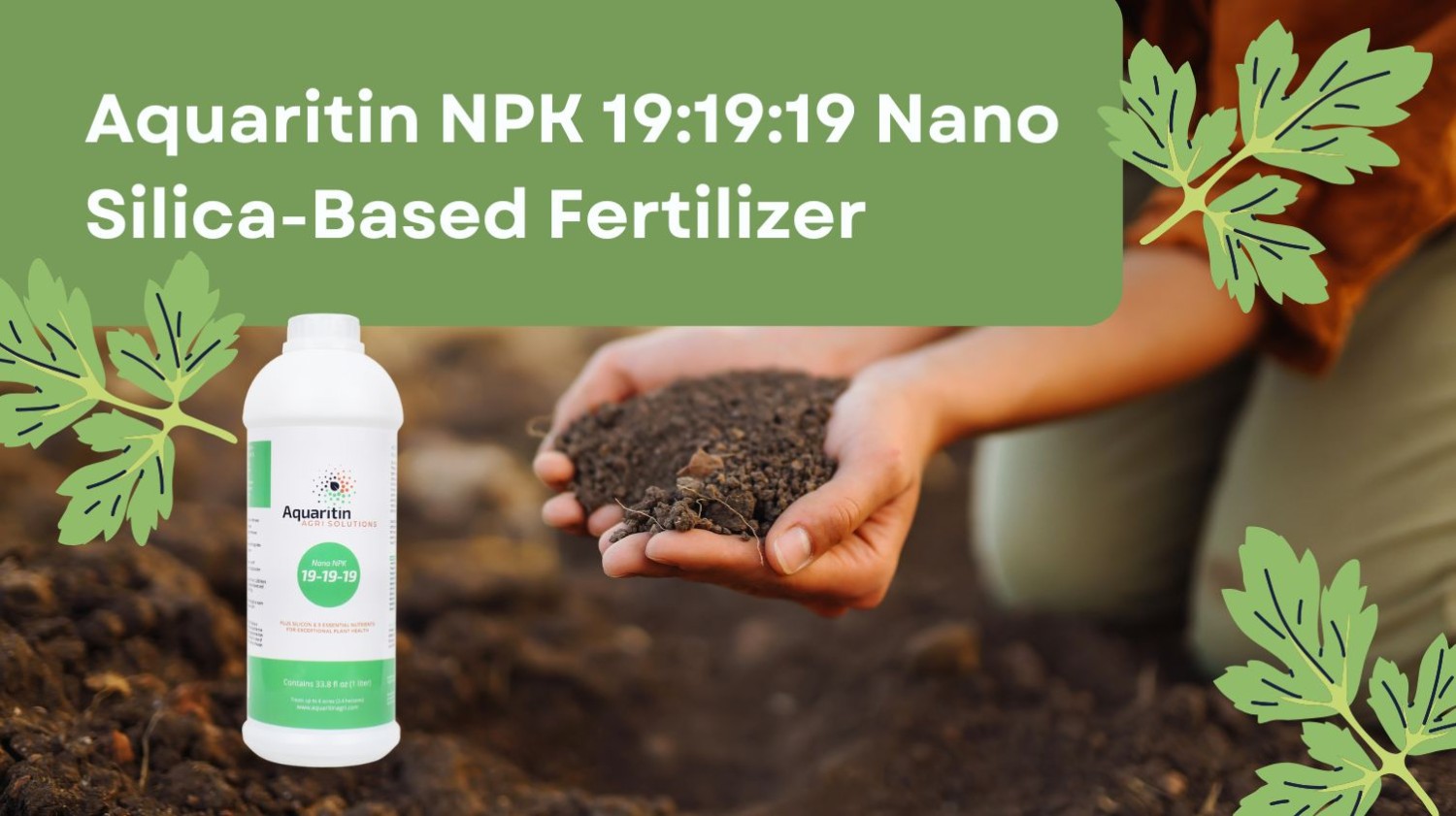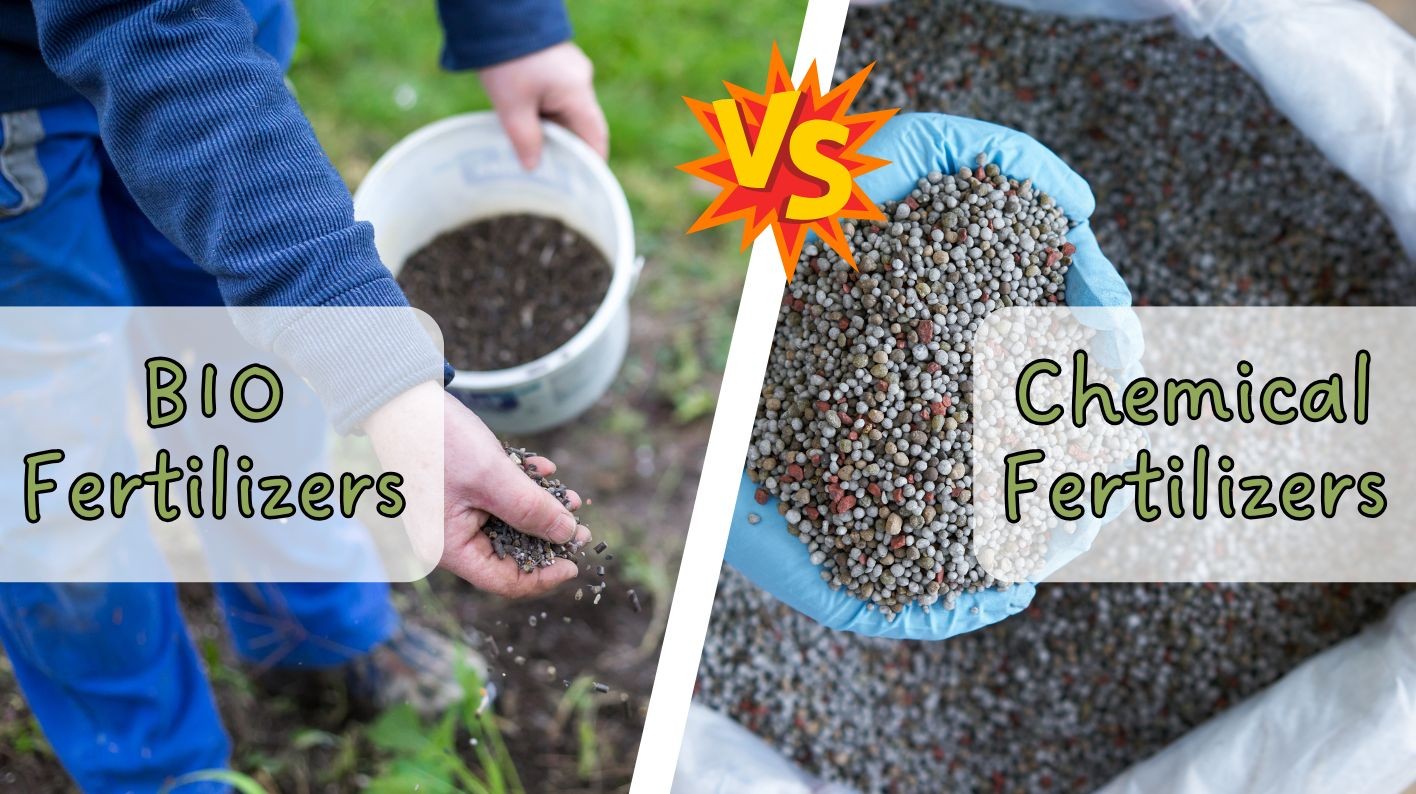Bio Fertilizers vs Chemical

Bio Fertilizers vs Chemical
Introduction: Fertilizers and Their Role in Agriculture
Attention: Fertilizers have played a vital role in agricultural development, boosting crop yields and enabling farmers to produce enough food for the world's growing population. However, not all fertilizers are created equal. As sustainability concerns continue to rise, the agricultural community is now evaluating two major categories:
Biofertilizers and chemical fertilizers Both fertilizers could nourish crops but had variations in composition, environmental effects, as well as the effectiveness over time.
Problem: As farmers and gardeners experience the mounting pressure to keep soil healthy while improving productivity, the question still arises: which fertilizer is better? Traditional chemical fertilizers would be used, that promise instant gratification otherwise, would shift to using bio fertilizers. Biofertilizers have an advantage in terms of sustainability but take a longer period to provide results. The undue dependence on chemicals has brought about the degradation of soil, pollution of water bodies, and biodiversity loss concerns. Biofertilizers are not as instant in their effects and have raised the concerns of farmers who feel that they might not meet the high demands of intensive agriculture.
Promise: In this blog, we will look at the differences between biofertilizers and chemical fertilizers, discussing their advantages, disadvantages, and environmental effects. By the end of this blog, you will know which fertilizer is best suited for your farming needs and how a more sustainable approach to fertilization can result in healthier crops, better soil, and a cleaner environment.
What Are Bio Fertilizers?
These fertilizers are made up of living organisms such as algae, fungi, and bacteria, and they act as a good stimulant for increasing soil fertility while improving plant growth. Unlike chemical fertilizers that give nutrients to plants directly, biofertilizers facilitate plants' access to nutrients by creating an environment around the soil which promotes its own natural ecosystem.
Common types of bio fertilizers:
Rhizobium: A type of bacteria that helps legumes fix nitrogen from the air, enriching the soil with this vital nutrient.
Azotobacter: A soil bacterium that aids in nitrogen fixation, enhancing soil fertility.
Mycorrhizal fungi: These fungi form symbiotic relationships with plant roots, helping plants absorb more nutrients, especially phosphorus.
Vermicompost: A rich source of organic material produced by earthworms, it improves soil structure and provides essential nutrients.
Biofertilizers are environmentally friendly and sustainable, meaning they enhance the long-term health of the soil through structural, water retention, and microbial biodiversity improvements.
What Are Chemical Fertilizers?
Chemical fertilizers or synthetics, are known as man-made fertilizers which contain vital nutrients that support the plants growth, which includes nitrogen (N), phosphorus (P), and potassium (K). It is usually developed based on specific nutrient requirements in plant development, thus comes in many forms - liquid, granule, or powdered. Some common chemical fertilizers include:
NPK Fertilizers: It is a fertilizer with different percentages of nitrogen, phosphorus, and potassium, which plants require to grow.
Urea: It is a nitrogen-based fertilizer, used for leafy growth in the plant.
Ammonium Nitrate: Mainly used when crops such as corn require more nitrogen.
Superphosphate: It supplies phosphorus to plants for root growth and flowering.
Chemical fertilizers quickly and effectively feed plants with nutrients needed for growth, but they don't improve soil health or the micro-organisms over time.
Bio Fertilizers vs Chemical Fertilizers:
Nutrient Release
Bio fertilizers: Bio fertilizers slowly release nutrients by natural processes. They work in the long run to enhance soil fertility and health in crops, thereby yielding more sustainable crops.
Chemical fertilizers: These fertilizers make nutrients readily available to plants. This stimulates rapid growth of plants but does not improve soil health in the long term.
Soil Health
Bio fertilizers: Bio fertilizers stimulate the microorganisms in the soil. This enhances soil structure, increases organic matter, and improves soil health. They support a healthy ecosystem that favors plant growth and long-term soil fertility.
Chemical fertilizers: Eventually, the use of chemical fertilizers in excessive quantities can lead to soil degradation. They may kill the natural microbial ecosystem, decrease organic matter, and even acidify the soil.
Environmental Impact
Bio fertilizers: They are environmentally friendly, reduce pollution, and are biodiversity-friendly. They enhance the soil health without damaging the environment.
Chemical fertilizers: The improper and excessive use of chemical fertilizers causes pollution as it leaches into the sources of water causing problems like eutrophication (algal blooms) and contamination of groundwater.
Cost Effectiveness
Biofertilizers: Though the initial cost is a little higher than chemical fertilizers, biofertilizers have long term benefits such as improvement in the health of the soil and lower use of synthetic fertilizers, which save them in the long run.
Chemical fertilizers: These fertilizers are expensive because they need to be applied frequently and they also have adverse effects on the environment. They are, however fast in yielding results, which is a commercial farmer's attraction.
Impact on Plant Growth
Bio fertilizers: Bio fertilizers take longer time to work but give stronger and healthier plants in the long run by enhancing soil quality and ensuring sustainable growth.
Chemical fertilizers: It is very potent for instant crop growth, and especially in a highly intensive farming system. However, it creates dependence and nutrient imbalances in soil.
Advantages of Bio Fertilizers
1. Enhancement of Soil Microbial Activity: Bio fertilizers enhance the soil's microbial activities, which promote the natural balance conducive to plant growth and resistance.
2. Sustainable Farming: They promote sustainable farming through the development of long-term soil health and decrease chemical inputs.
3. Eco-Friendly: Bio fertilizers are environmentally friendly, which decreases the chances of water pollution and soil contamination.
4. Enhanced Soil Structure: Bio fertilizers enhance organic matter, aeration, and water retention in soil.
Advantages of Chemical Fertilizers
1. Rapid Response: Chemical fertilizers ensure rapid availability of nutrients, thereby resulting in quick growth and higher crop yield.
2. Easy to Apply: They are easy to apply and handle, thus making them the most suitable for large-scale farming.
3. High Concentration of Nutrients: Chemical fertilizers are concentrated and contain a large amount of nutrients in a small quantity.
4. Suitable for Specific Requirements: Chemical fertilizers can be prepared for specific crops or soil requirements, thus allowing the plants to take in the correct amount of nutrients.
Disadvantages of Bio Fertilizers
1. Slower Effect: Bio fertilizers work slower than chemical fertilizers hence, it may not yield the instant effects that some farmers require.
2. Storage and Handling: Bio fertilizers have to be stored and handled carefully to maintain the viability of the microorganisms and may have a shorter shelf life than chemical fertilizers.
3. Limited Application: Some bio fertilizers are specific to certain crops or soil conditions, which limits their versatility.
Disadvantages of Chemical Fertilizers
1. Environmental Damage: Excessive use of chemical fertilizers can lead to pollution of water bodies, soil degradation, and a loss of biodiversity.
2. Soil Health Degradation: Long-term use of chemical fertilizers can disrupt soil microorganisms, reduce organic matter, and lead to soil compaction.
3. Nutrient Imbalance: Over-reliance on chemical fertilizers can cause nutrient imbalances in the soil, making it harder for plants to absorb other essential nutrients.
When to use Bio Fertilizers vs Chemical Fertilizers?
Bio fertilizers are more appropriate for organic farming, sustainable agriculture, and soil health enhancement in the long run. It works well with the maintenance of a healthy ecosystem of the soil and biodiversity improvement.
Chemical fertilizers would be more appropriate in scenarios where rapid results are expected, especially on high-yielding crops or low soil fertility. These are most often used in conventional large-scale farming as productivity enhancers.
Integrated Approach: Proper use of bio fertilizers with chemical fertilizers can provide the best of both worlds. This balanced approach will maintain long-term health of the soil while providing crops with the essential nutrients needed on time.
There is a vast future for fertilizer in agriculture.
Increasingly, the agriculture sector is now being directed towards sustainable practices by rising concerns for environmental and health issues caused by chemical fertilizers. Bio-fertilizers have emerged as eco-friendly products which increase the soil's health over time, and further new researches and innovations in bio-based fertilizers have also made it more effective and available for the farmers.
As we look toward more sustainable agricultural practices, biofertilizers are going to play a key role in reducing our dependence on synthetic chemicals and promoting healthier, more resilient farming systems.
Conclusion
Biofertilizers and chemical fertilizers are two very different fertilizers, each having its own pros and cons. Chemical fertilizers can provide quicker results and greater yields in the short term but might harm the environment and soil health over time. On the other hand, bio fertilizers support sustainability, enhance soil fertility, and sustain long-term crop health, thus making them ideal for sustainable agriculture.
The choice of fertilizer type is, therefore, dependent on the specific goals of farming, crop requirements, and environmental factors. This balanced, integrated approach will ensure healthy crops and a healthy future for the land. If You More Information please connect with Kisaan Trade.








